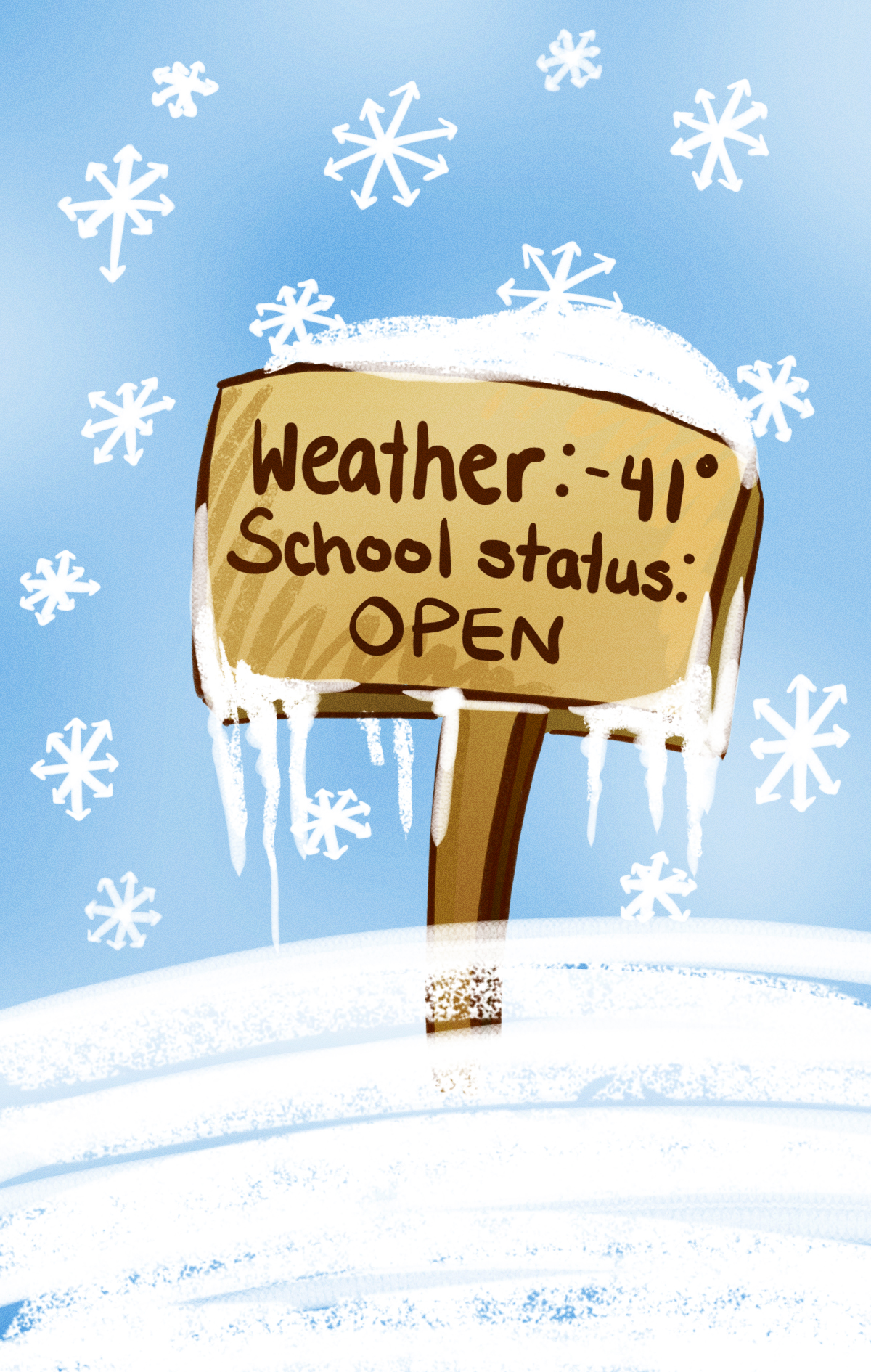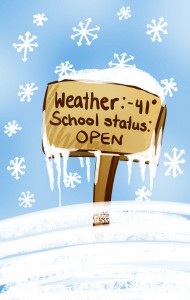Laurier affirms closure policy on weather


Debate sprung up on the Wilfrid Laurier University Facebook page last week, as students called into question the university’s decision to remain open amid freezing temperatures.
On Jan. 7, Environment Canada recorded that Waterloo reached -25.8 degrees Celsius and broke a wind chill record of -41. The old record was -40.5 degrees Celsius on Jan. 17, 1982.
As a result of the temperature, Environment Canada warned that skin exposed for more than five minutes outdoors ran the risk of contracting frost bite and advised people stay indoors.
However, the same day, Laurier posted online that its doors would remain open and reminded travelers to use caution.
“If Environment Canada is saying don’t go outside- especially if it’s the first day of school and students aren’t going to want to miss it- why would you put students at risk?” wondered Ryan Legere, a third-year music student who expressed his concern on Laurier’s Facebook page.
However, according to Lori Chalmers Morrison, acting director of communications and public affairs, “it was determined that the cold temperature in and of itself was not deemed a sufficient reason to close the entire university.”
The decision to close the Waterloo and Kitchener campuses, Chalmers Morrison explained, is ultimately up to the president’s office. However, a group of operational managers review Environment Canada warnings, the weather forecast, the actions of other institutions in the area and public transit to help inform the decision. They are also guided by the university’s Policy on Severe Weather and Storm Closing.
Chalmers Morrison noted that they did receive feedback from students last week via social media.
“Students were questioning the decision and then we provided the information as best we could as to why the decision was made,” she explained.
On their Facebook page, Laurier gave several reasons for their decision not to close the university: that the vicinity around the university did not receive significant snowfall and that the main roads and sidewalks had been cleared.
“The sidewalks were not clear,” said Carley Dafoe, a first-year political science student. “I was treading in the snow.”
She continued that the weather had a definite impact on her ability to attend class.
“I didn’t feel like walking in negative 40 weather. Especially when frostbite was under five minutes and it takes five-to-seven minutes to walk to your class. I ended up not going to my first week of classes.”
“[Snowfall] wasn’t the issue at all,” said Legere. “It was the cold and the ice.”
Legere explained that on Tuesday, two out of his three classes were cancelled due to his professors being unable to get to campus.
“That’s just me, but I’m assuming that happened to a lot of people,” he said.
“If that many profs are cancelling, obviously it was bad enough that I think they should have closed school.”
Legere believes that the policy should be revised to incorporate extreme temperatures as a qualification for closing the institution.
The policy is set to undergo review every five years. It was last reviewed in 2012 with updates in December 2013.
“We do, definitely, look at student feedback and consider the feedback we receive and make that part of the broader discussion,” Chalmers Morrison noted.
According to Chalmers Morrison, Laurier has had two closures in the past three years, and one evening closure, none of which were a result of extreme cold.


